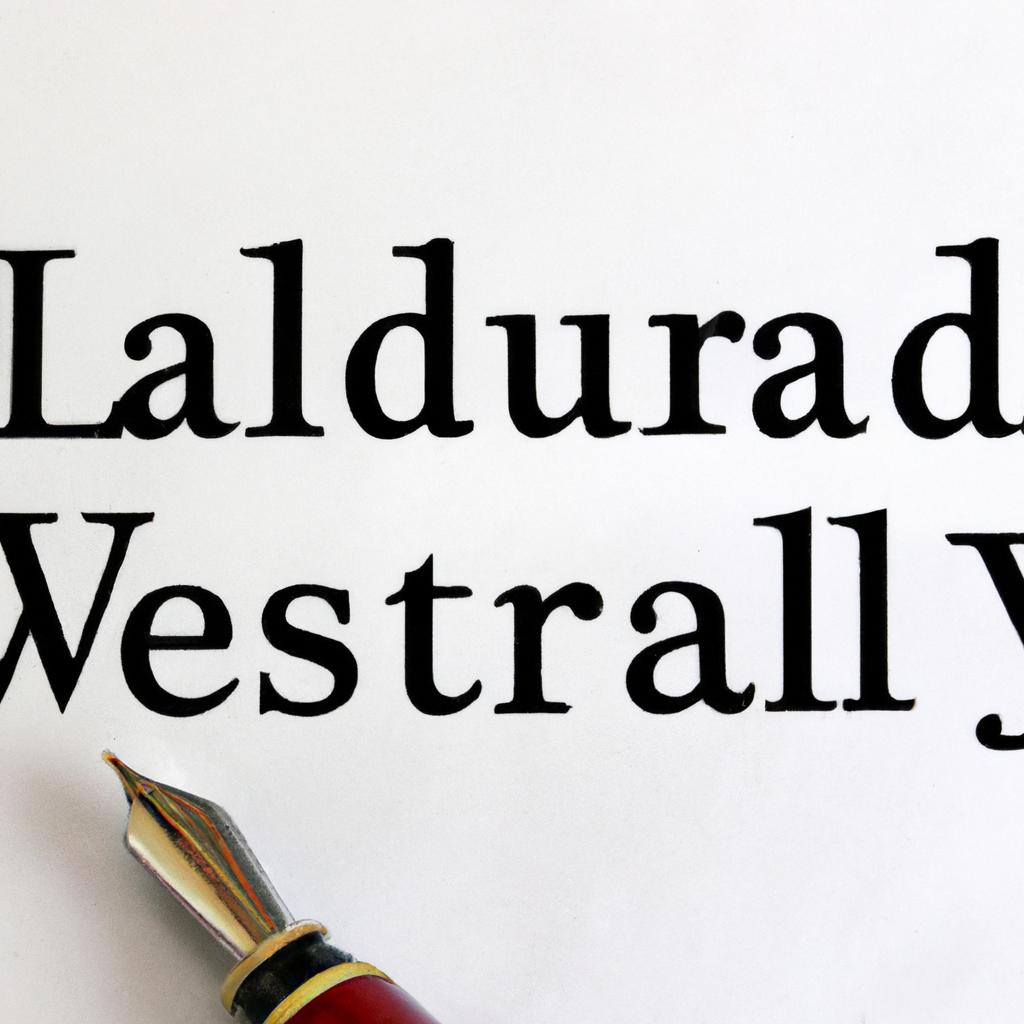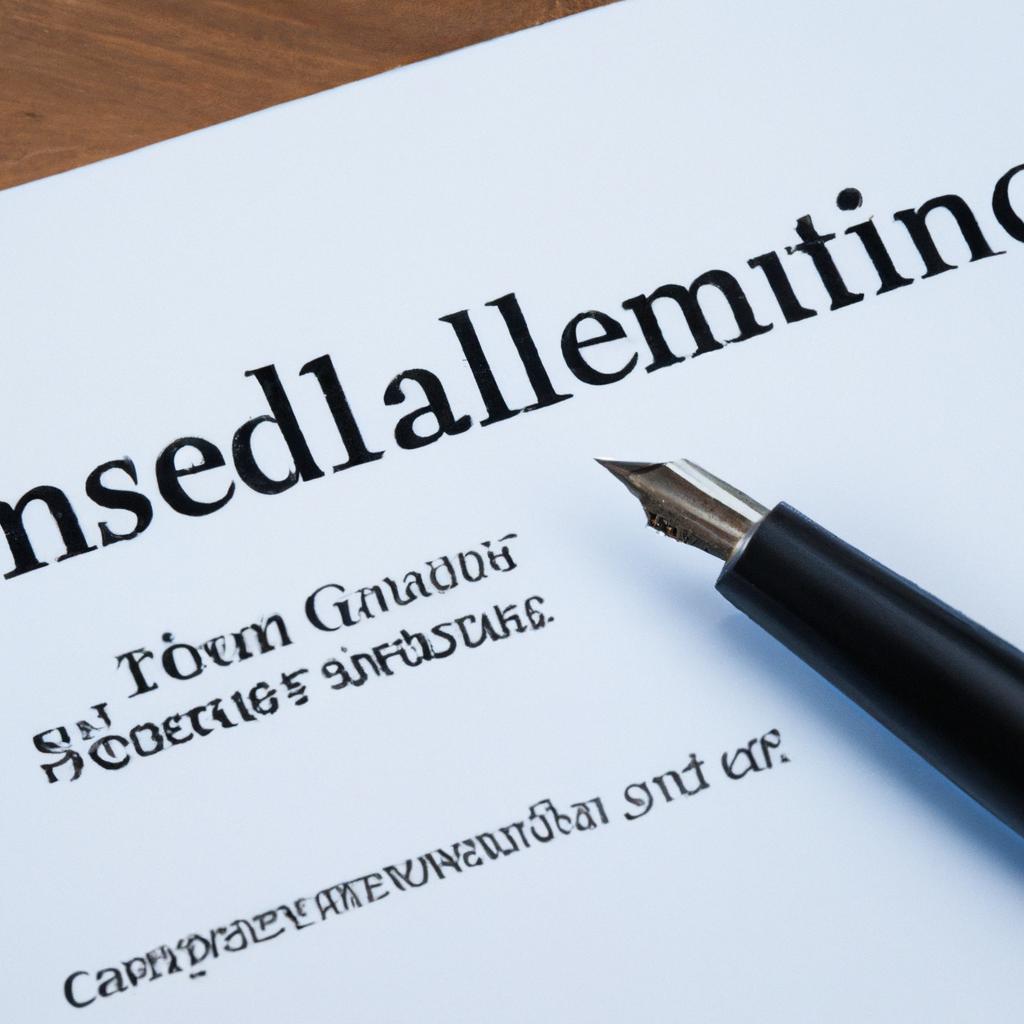In the intricate tapestry of estate planning, the question of whether a handwritten will holds legal weight looms large. As seasoned practitioners in the field of probate, elder law, and trusts, the team at Morgan Legal Group in the heart of New York City has encountered this query countless times. With a careful examination of the nuances and intricacies surrounding the validity of handwritten wills, we aim to shed light on this pertinent issue to guide and inform individuals seeking clarity in their estate planning endeavors.
Handwritten Wills: Understanding Legal Validity
Handwritten wills, also known as “holographic wills,” can be a source of confusion when it comes to their legal validity. While they may seem less formal than a will drafted by an attorney, handwritten wills can still hold up in court under certain circumstances. One key factor in determining the legality of a handwritten will is whether it meets the specific requirements set forth by state law.
Some important points to consider when evaluating the legal validity of a handwritten will include:
- Whether the will is entirely in the testator’s handwriting
- If the testator has signed and dated the will at the end
- If the will clearly identifies the testator’s assets and beneficiaries
- Whether any witnesses are required by state law

Factors Influencing the Legality of a Handwritten Will
When determining the legality of a handwritten will, there are several key factors that must be considered. One of the primary factors is whether the document meets the requirements set forth by state law. In New York, for example, a handwritten will is considered valid if it is entirely in the testator’s handwriting and signed at the end. Additionally, the testator must have the mental capacity to understand the consequences of creating a will and must not be under any undue influence or duress.
Another important factor is the clarity and specificity of the language used in the will. The document should clearly identify the testator, beneficiaries, and assets being bequeathed. Ambiguities in the language of the will can lead to disputes among heirs and may result in the will being declared invalid. It is also crucial to ensure that the will is dated, as this can help establish its validity and authenticity.

Interpreting Handwritten Wills: Legal Challenges and Risks
When it comes to interpreting handwritten wills, there are numerous legal challenges and risks that must be carefully considered. Handwritten wills, also known as holographic wills, can often be a source of confusion and contention among family members and beneficiaries. One of the biggest challenges with handwritten wills is determining their validity and authenticity. Without the oversight of witnesses or notaries, it can be difficult to verify if the will accurately reflects the wishes of the deceased individual.
Additionally, handwritten wills may be subject to interpretation and ambiguity, leading to disputes and litigation. The language used in a handwritten will must be clear and unambiguous to avoid any confusion or misinterpretation. Without a clear understanding of the testator’s intentions, the will may be deemed invalid or contested in court. It is essential to consult with a legal professional experienced in estate planning and probate to navigate the complexities of interpreting handwritten wills and mitigate any potential risks.

Recommendations for Ensuring the Validity of a Handwritten Will
To ensure the validity of a handwritten will, there are several recommendations that should be followed. Firstly, the testator must ensure that the will is entirely in their own handwriting. This is crucial in proving that the will truly reflects the wishes of the testator. Additionally, the will should clearly state the date it was written and signed by the testator. This helps in establishing the timeline of events and proves that the will was created before any potential disputes or contests arise. Finally, it is advisable to have at least two witnesses present when signing the will, who can attest to the mental capacity and volition of the testator.
Furthermore, it is recommended to keep the handwritten will in a safe and secure location, such as a safe deposit box or with a trusted attorney. This helps protect the will from damage, loss, or tampering. Additionally, it is essential to regularly review and update the will as needed to reflect any changes in circumstances or wishes. By following these recommendations, individuals can help ensure that their handwritten will is legally valid and will be upheld in probate court.
Q&A
Q: Is a handwritten will legal?
A: Yes, in many states a handwritten will, also known as a holographic will, can be considered legal as long as it meets specific requirements.
Q: What are the requirements for a handwritten will to be considered legal?
A: The requirements vary by state, but generally, a handwritten will must be entirely in the handwriting of the person making the will, dated and signed by them, and must clearly state their intentions for distribution of their assets.
Q: Are there any drawbacks to having a handwritten will?
A: Handwritten wills can be more easily challenged in court, as there is a greater risk of ambiguity or confusion about the testator’s intentions. It is always recommended to consult with a legal professional when creating a will to ensure it is legally sound.
Q: Can a handwritten will be typed up later for clarity?
A: It is generally not recommended to type up a handwritten will after the fact, as this could lead to questions about the authenticity of the document. It is best to create a new will that meets all legal requirements if clarity is needed.
Q: What should someone consider before creating a handwritten will?
A: Before creating a handwritten will, it is important to familiarize oneself with the laws of the state in which one resides, seek guidance from a legal professional if needed, and ensure that the document clearly reflects one’s wishes for the distribution of their assets.
To Wrap It Up
In conclusion, while handwritten wills can be considered legal in many jurisdictions, it is always recommended to consult with a legal professional to ensure that your final wishes are documented properly and in accordance with the law. By seeking guidance from an expert, you can help avoid potential disputes or challenges that may arise in the future. Remember, clarity and airtight legal documentation are key when it comes to securing your legacy for your loved ones. Thank you for reading!

